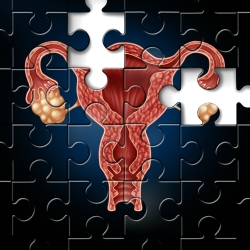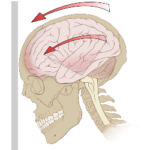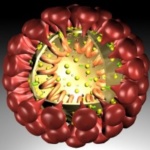
Polycystic Ovarian Syndrome (PCOS)
Polycystic ovarian syndrome (PCOS) is a metabolic disorder characterized by the abnormal production of androgen hormones in females. This condition has an unfortunate name as the finding of multiple cysts on the ovaries is only a minor part of the diagnostic criteria and very non-specific to PCOS. The dominant feature of PCOS is that there are excess androgens being produced by the ovaries.
Anytime you hear “syndrome” in medicine, it means that there is a collection of abnormal findings that may span various organ systems of the body with no solitary definable cause. Conventional medicine does not have many useful options available to those suffering from this condition, but through careful investigation I’ve found there are clear causes and effective treatments.
You May Have PCOS If You:
- have irregular periods
- have missed periods
- are infertile
- have increased facial hair
- unexplained weight gain (truncal obesity)
The most common of the symptoms will be irregular and missed periods, which certainly have other reasons than PCOS and is why if you have any of the above symptoms, seeing a qualified physician will be very important.
I Have the Symptoms…How Do I Get Diagnosed?
Like most syndromes, the diagnosis is mostly clinical. This means that there is no one “magic” test, but rather a collection of signs/symptoms and lab tests that highly suggest the syndrome. Ultimately, it will be the clinicians job to rule out all other possibilities before diagnosing PCOS. Once all other possibilities are ruled out having two out of the following three criteria is enough to diagnose PCOS:
- chronic anovulation (clinical history and labs)
- hyperandrogenism (labs tests and signs of increased facial hair)
- polycystic ovaries (ultrasound imaging)
How Did This Happen?
This is the most important question you should ask your physician as there are multiple different reasons for a person to have PCOS. Finding out why YOU have PCOS will insure that your treatment is individualized for you specifically, make treatment that much more effective. In more functional medicine circles the primary reasons for having PCOS would be:
- Insulin Resistance – this is by far the most common cause of PCOS. Insulin is necessary for lowering elevated blood sugar, if the body is resistant to the signalling of insulin, the sugar stays elevated in turn so will the insulin. It is the elevated insulin, which prevents ovulation and stimulates the ovaries to produce excess androgens.
- Birth Control – not as common as insulin resistance, but still quite common is the onset of PCOS after discontinuing an oral contraceptive. The hormones in the contraceptive can prevent ovulation long after the pill is discontinued. Additionally, for some unknown reason there is excessive androgen production as well.
- Inflammation – systemic inflammation from autoimmunity or a toxic lifestyle can prevent ovulation by “clogging” up hormone receptors and increase androgen production.
Believe it or not, there are actually more causes of PCOS than the three listed above, but those listed above are the most common. Conventional treatment of PCOS focuses on prescribing medications to increase insulin sensitivity, reduce androgen production, or to take an oral contraceptive pill. I would urge anyone with this diagnosis or enough of the above symptoms to seek out a knowledgeable practitioner who will investigate their unique cause of PCOS and will offer treatments that try to correct the underlying cause. Not everyone with a PCOS diagnosis has to live with this for the rest of their lives, there is hope that this diagnosis can go away with proper treatment.


